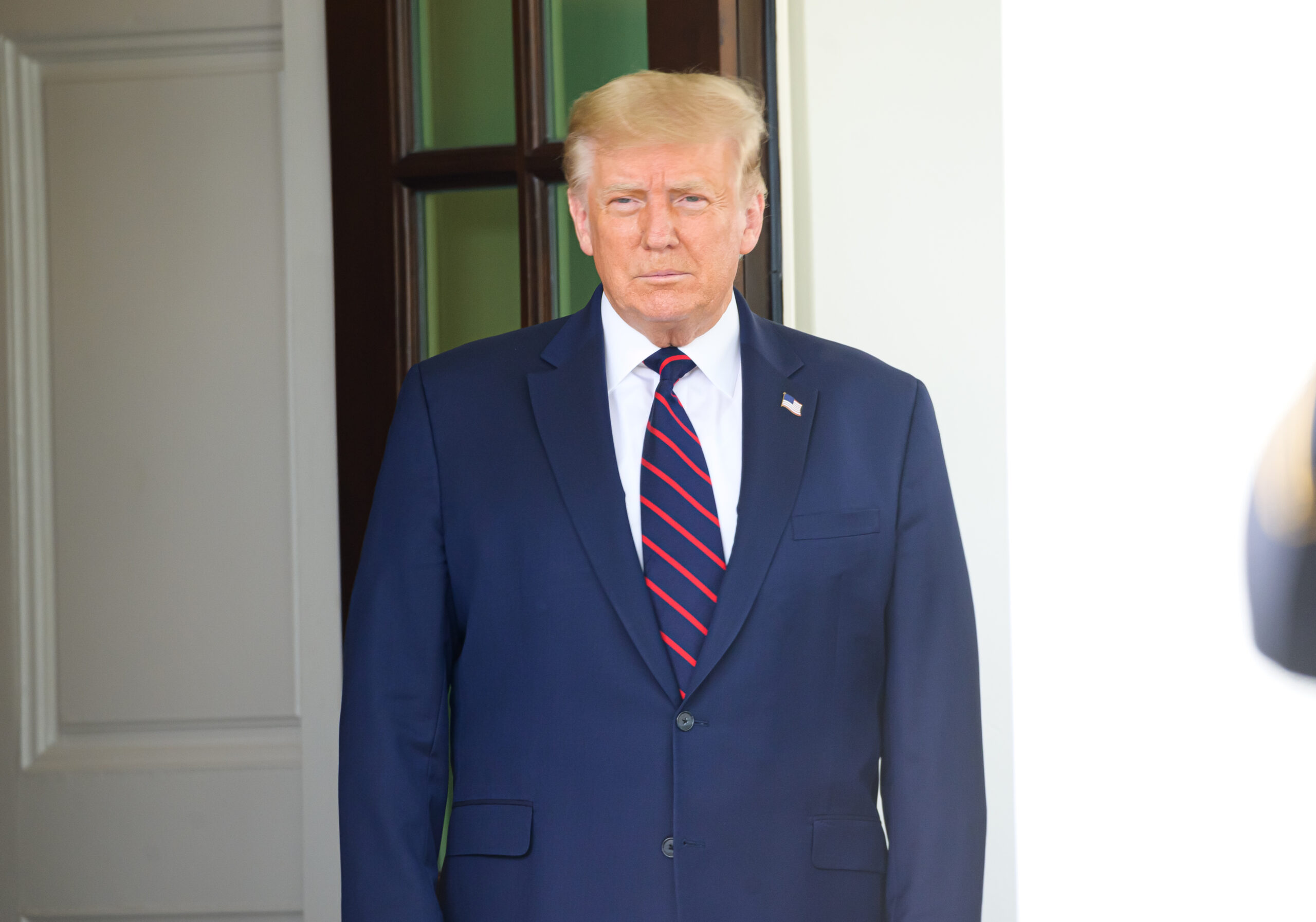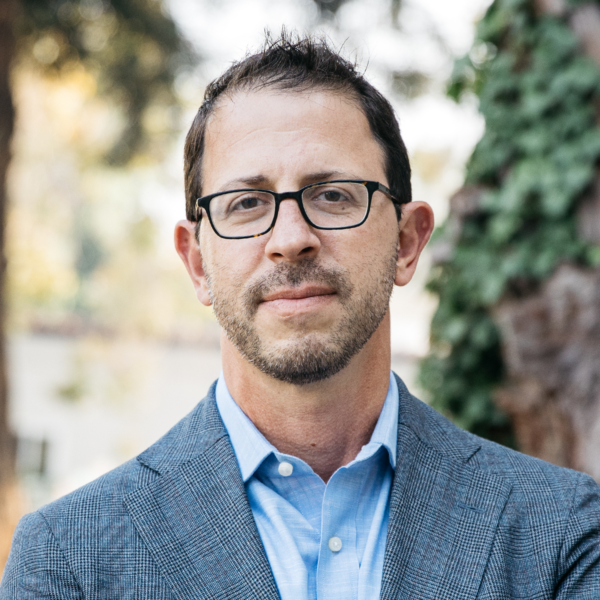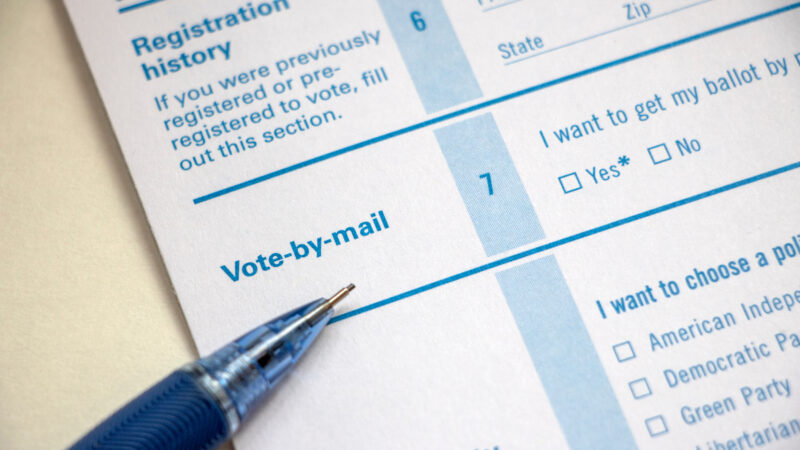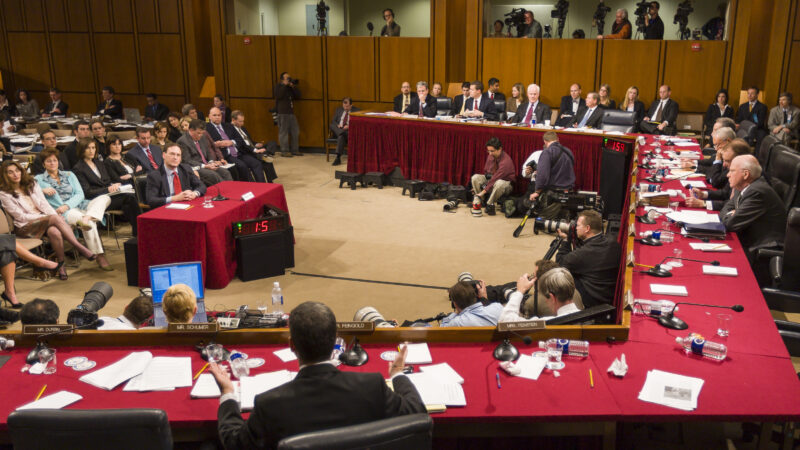Kristy Parker is Special Counsel at Protect Democracy. She leads litigation to secure accountability for abuses of executive power and interference with government functions, and leads advocacy to reform the Department of Justice and protect its independence from politicization.
Trump’s indictment for conspiring to hold onto power is a step forward for democracy
- August 1, 2023

After two years — and hundreds of convictions for those who stormed the Capitol on January 6th — a federal grand jury has indicted former president Donald Trump for the extraordinary and unlawful steps he and other conspirators took to stay in power after losing the 2020 election. The indictment details allegations of an extensive conspiracy Trump led to overturn the election, thus interfering with the rights of Americans to vote and have their votes counted. The scheme included promoting a false narrative about widespread election fraud, coercing state officials to set aside lawful votes, pressuring the Vice President to refuse to count lawfully submitted electoral votes, directing a mob to go to the Capitol, and exhorting that mob to “fight like hell.” The conspiracy culminated in an attack on Congress, the first invasion of the Capitol since British troops set it on fire in 1814.
This is, of course, not Trump’s first indictment. But it is the first that seeks to hold him accountable for actions he took to delegitimize and subvert the results of a free and fair election and remain in office despite his election loss.
Whether Trump would or should be investigated and charged with insurrection-related crimes, and whether our justice system could successfully convict him if warranted by the evidence, has been the subject of intense debate for more than two years, with many prominent voices arguing that prosecuting a former president would threaten democracy in various ways.
Many others, including the authors of this piece — as well as thousands of Justice Department alumni — have argued that the most fundamental principles of democracy and the rule of law require Trump to be treated the same as any other person accused of similar conduct. Especially when that conduct attacks our elections.
Read more: More than 1,000 DOJ Alumni Explain Ongoing Investigations of Trump Should Not Be Deterred by His Presidential Candidacy Read more: More than 1,000 DOJ Alumni Explain Ongoing Investigations of Trump Should Not Be Deterred by His Presidential Candidacy
And today, the Justice Department chose to follow those principles.
A jury will decide whether prosecutors meet their burden of proof that Trump is guilty. And his trial will be overseen, and any punishment imposed, by a federal judge. The risks that Trump might escape justice and the consequences of that happening remain serious. But even in the face of these unknowns, our democracy passed a critical test with this indictment.
Upholding the rule of law and DOJ independence
Not least because of the intense political debate that has surrounded it, the indictment upholds the rule of law and the Justice Department’s insulation from partisan politics.
Despite claims from some that charging a former president with crimes sets a dangerous precedent that will lead to an endless stream of political retaliation, our legal system runs on the idea that no one is above the law. Decisions to prosecute federal crimes must be based on the relevant facts and the law, and whether there is a requisite federal interest, as guided by the Justice Department’s Principles of Federal Prosecution. The government cannot consider the political status, opinions, or affiliations of any subject. And it cannot weigh the political ramifications of the case. Any decision to reconcile the politics of a given prosecution is reserved for the president through the pardon power. In short, this means that refusing to charge someone with a crime because they are the former president would subvert the rule of law every bit as much as targeting a former president because of his politics.
Protect Democracy published a guide for assessing the propriety of prosecutions of political leaders, and the January 6 indictment easily comports with its measures of legal soundness and political independence.
No political interference. There is no evidence of political interference in the Justice Department’s investigation or decision-making process with respect to Trump, or that it was influenced by political pressure. Last year, the Attorney General appointed Special Counsel Jack Smith to run the investigation specifically to distance it from President Biden’s political appointees. Before that, the White House and the Justice Department issued policies limiting communications on enforcement matters in accordance with post-Watergate norms established to safeguard the Department’s independence. Furthermore, both the Attorney General and President Biden have consistently declined to comment on the Trump investigations. The Department has been both criticized from the left for moving the case too slowly, and it has faced pressure from the right, including Trump himself, to drop it. The Department has moved the case at its own pace and withstood pressure to abandon it because of the political ramifications — signs that the Department has acted independently and in accordance with its assigned role.
Read more: How to tell whether a government investigation or prosecution is “weaponized” Read more: How to tell whether a government investigation or prosecution is “weaponized”
Consistent with publicly available facts. An indictment here is consistent with the publicly available facts, many of which unfolded before our own eyes or were revealed by the evidence gathered and released by the House January 6 Select Committee, and by extensive media accounts. Those facts demand the kinds of criminal charges under relevant laws that hundreds of others have faced and that federal judges overseeing the insurrection prosecutions have suggested are warranted against Trump. Of course, Trump will have every right to argue that the evidence does not amount to proof beyond a reasonable doubt that he is guilty of the charged crimes. And he may succeed. But the notion that he should not have been charged suggests that while most citizens are subject to the laws implicated by this indictment, the most powerful person in the country is exempted.
Validated by outside decisionmakers. Finally, the judicial system has, thus far, validated the investigation. Federal judges have ruled in the government’s favor on various related issues or otherwise opined in ways that indicate that the investigation is meritorious. For example, judges have repeatedly ordered high-ranking Trump administration officials, such as Mark Meadows and Mike Pence, to comply with grand jury subpoenas. Several judges in the January 6 trials have noted Trump’s responsibility for summoning the mob to the Capitol and inspiring its behavior. And another federal judge opined that it was “likely” that Trump and one of his lawyers had committed crimes in connection with January 6. Finally, a federal grand jury returned an indictment, representing the judgment of 23 citizens that the prosecution has established probable cause to believe that Trump committed the crimes alleged.
In view of these criteria, it is only fair to conclude that the Justice Department made a correct and independent decision to seek an indictment, upholding the rule of law.
Holding politicians — especially former presidents — accountable for breaking the law is critical for democracy
Holding high-ranking political leaders accountable for law-breaking is central to a functioning democracy. As several of us have written, however daunting the challenges of holding political leaders accountable, failing to would represent “a retreat from the rule of law” and “an invitation to wrongdoers to escalate wrongdoing and for others to follow suit.” What’s more, it is common for democracies to hold political leaders accountable, including in the United States.
As we’ve written elsewhere, accountability should not be understood as simply punitive. Accountability is instrumental to fortifying democracy against erosion: an essential prerequisite to preventing future abuses of power. By establishing a common set of facts, including through the courts, accountability efforts can help to construct a full and truthful telling of events. By enforcing consequences for unlawful behavior, accountability serves a critical deterrence function, broadcasting the signal — including among the most powerful — that criminality is not rewarding. And by permitting the justice system to do its work impartially, accountability can help to rebuild trust in the integrity of public institutions and in public servants.
Read more: Towards Non-Recurrence: Accountability Options for Trump-Era Transgressions Read more: Towards Non-Recurrence: Accountability Options for Trump-Era Transgressions
The pursuit of accountability always carries risks. Those with powerful public platforms may galvanize their supporters, including violent ones. Accountability can invite political retaliation. Others may yet become martyr-like figures for the movements they represent. Yet each of these risks can also be understood as a threat — that should our rule-of-law system be allowed to run its course, those alleged to have committed crimes will work to further undermine democratic institutions.
In sum, concerns about the ultimate outcome should not detract from the vindication of the rule of law this indictment embodies. Our institutions will continue to be tested by Trump and his allies as he defends himself against the charges, likely with attacks on those institutions and efforts to intimidate the lawyers, judges, and jurors who do their work. But bringing Trump before the criminal justice system to answer for his coup attempt is a sign that “equal justice under the law” can be more than mere words on a piece of paper and that future autocrats would be taking their own considerable risk in seeking to emulate Trump.
Indicting a former president because of his actions while in office is extraordinary — as was his attempt to stage a coup. But the consistent application of the law, no matter how powerful a defendant, is the opposite: the ordinary, day-to-day course of justice on which democracies depend.
Related Content
Join Us.
Building a stronger, more resilient democracy is possible, but we can’t do it alone. Become part of the fight today.
Donate
Sign Up for Updates Sign Up for Updates
Explore Careers Explore Careers
How to Protect Democracy How to Protect Democracy





